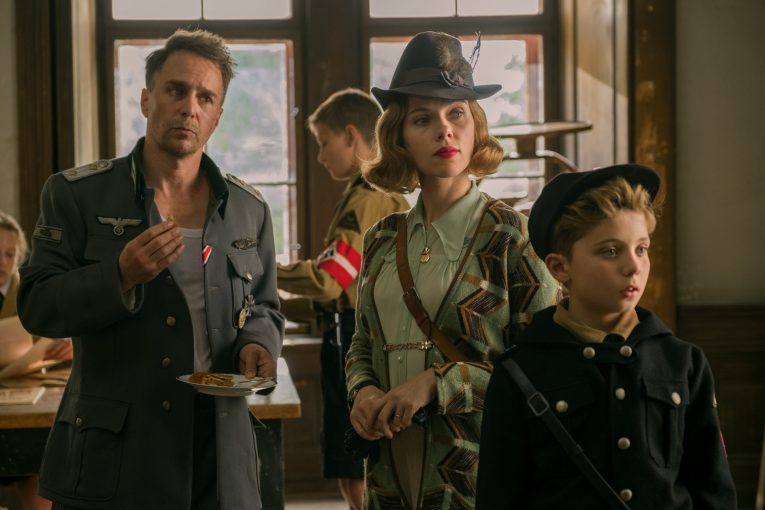Most children have an imaginary friend growing up. For Jojo, that imaginary friend just so happens to be Adolf Hitler.
The film follows 10-year-old Jojo (Roman Griffin Davis), a member of the Hitler Youth, and his coming-of-age in Nazi Germany. He is a loyal member of the Nazi Party, but after he discovers his mother, Rosie (Scarlett Johansson), is hiding a young Jewish girl, Elsa (Thomasin McKenzie), in their home, he begins to grapple with the sinister beliefs that have been put into his mind by the extremism around him.
“Jojo Rabbit” is the newest film by “Thor: Ragnarok” director Taika Waititi. He takes on the role of the imaginary Hitler in the movie, alongside writing and directing it.
Davis’ performance as Jojo is nuanced and engaging. He has superb comedic timing, but is also able to break hearts in more emotional scenes.
While Waititi’s over-the-top and buffoonish portrayal of Hitler exemplifies the satirical element he was going for, there are many more notable performances in the film. One such performance is that of Archie Yates as Yorki, Jojo’s second-best friend after Hitler. He is an absolute scene-stealer and owns each scene he is in through his humorous performance. Another noteworthy performance is Thomasin McKenzie as Elsa. She portrays pain and power with a lived-in feel and gives the character a history beyond the text.
“You’re not a Nazi, Jojo, you’re a 10-year-old kid who likes dressing up in a funny uniform and wants to be part of a club,” Elsa says. There lies the film’s main message: this naive young boy has become so caught up in fanaticism and the desire to belong to something that he has become blinded by lies. Throughout the film, the audience sees him come of age and take control of his life as he challenges everything he knows and starts to see the world more clearly.
Waititi does a nice job of balancing the tone in the film. Since it is a satire, it has a mainly comedic tone throughout but is not without drama and tension. The film’s signature move seems to be making the audience let their guard down right before a tragic or tense moment. It then proceeds to shock them from laughter into immediate silence.
Nevertheless, there are times where the film feels almost too funny and whimsical for its own good. The film’s didactic elements — its message about the susceptibility of youth to blind fanaticism and takedown of Nazis and their sickening beliefs — are front and center. Yet one can’t help but feel that, while the jokes toe the line with their raunchiness, the director played it safe. He avoids dealing too directly with some of the horrors of the time period and focuses more on how war destroys the innocence and hope of young people.
“Jojo Rabbit” is a new take on Nazi satirization that many have done before in films like “The Producers” with a message that is pertinent for all generations. While the film is as hilarious as it is heart-wrenching, it doesn’t quite go all the way with the material. Ultimately, what could have been a stand-out is just good.
A version of this article appears in the Monday, Oct. 21, 2019, print edition. Email Kaylee DeFreitas at [email protected].
























































































































































